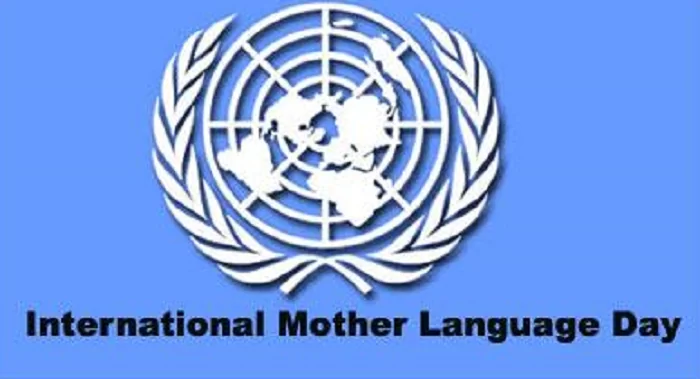Famous Personalities from Bangladesh: Bangladesh, a country rich in cultural history and resilience, has produced numerous personalities who have significantly contributed to its identity on the global stage. From Nobel laureates to poets, these figures have shaped the nation destiny through their remarkable contributions. This article delves into the lives and legacies of some of the most influential Bangladeshi personalities, highlighting their achievements and enduring impact on both their country and the world.
Muhammad Yunus: The Nobel Laureate
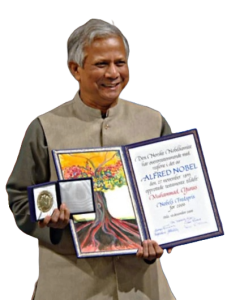
Background
Born in 1940, Muhammad Yunus is a figure synonymous with social entrepreneurship and microfinance a model that has transformed lives globally. His journey from an economics professor to a Nobel Peace Prize laureate underscores his commitment to combating poverty through innovative financial solutions.
Microfinance and Microcredit
Famous Personalities: Yunus founded the Grameen Bank in 1983, pioneering the concepts of micro-credit and micro-finance. These initiatives have empowered millions of impoverished individuals, especially women, by providing them with small loans to start their businesses, thereby fostering economic independence and development.
Impact on Poverty Alleviation
The success of Yunus’s model has been replicated worldwide, proving that small-scale financial assistance can be a powerful tool in poverty alleviation. His work not only revolutionized the banking sector but also instilled hope among the poorest.
Sheikh Mujibur Rahman: The Founding Father
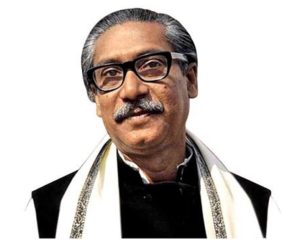
Early Life and Political Career
Famous Personalities: Sheikh Mujibur Rahman, affectionately known as Bangabandhu, was born in 1920. His early involvement in politics set the stage for his pivotal role in Bangladesh’s struggle for independence.
Role in Bangladesh’s Liberation
As the architect of Bangladesh’s independence, Sheikh Mujib’s leadership during the Liberation War of 1971 was instrumental. His vision of a sovereign nation free from discrimination and oppression mobilized masses, leading to the birth of Bangladesh.
Legacy and Assassination
Sheikh Mujib’s legacy as the founding father of Bangladesh is monumental. However, his life was tragically cut short in 1975, leaving behind a legacy of resilience and national pride.
Abdul Hamid Khan Bhashani: The Socialist Leader
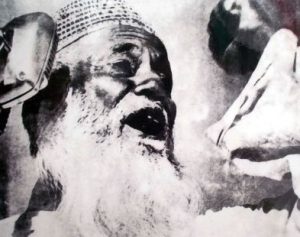
Advocacy for Independence
A fervent advocate for Bengali independence, Bhashani’s socialist ideologies resonated with the marginalized. His political activism played a crucial role in the independence movement.
Influence on Politics
Bhashani’s influence extended beyond the struggle for independence, advocating for the rights of the poor and fostering a spirit of resistance against oppression.
Legacy
His legacy endures as a symbol of defiance and advocacy for social justice, inspiring future generations.
Khaleda Zia: Pioneering Female Prime Minister
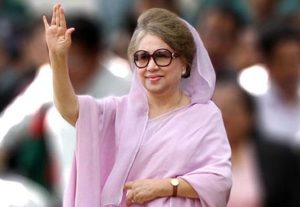
Rise to Power
Khaleda Zia’s journey from the First Lady to Bangladesh’s first female prime minister is a testament to her resilience and leadership.
Contributions to Education
Her emphasis on education, particularly for girls, has left a lasting impact on the nation’s socio-economic landscape.
Political Challenges and Achievements
Despite political turbulence, Zia’s tenure is marked by significant contributions to Bangladesh’s development and democracy.
Kazi Nazrul Islam: The Rebel Poet
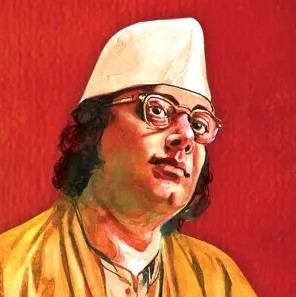
Early Life and Influences
Nazrul’s early experiences shaped his revolutionary spirit, which he expressed through his poetry and music.
Literary and Musical Works
His works, advocating for freedom and against oppression, earned him the title of the Rebel Poet, resonating with the struggles of the Bangladeshi people.
National Significance
Nazrul’s legacy as the national poet of Bangladesh is a reflection of his profound impact on the country’s cultural and political landscape.
Ziaur Rahman: The Visionary Leader
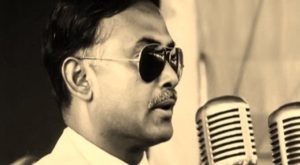
Military Career and Rise to Presidency
Ziaur Rahman’s military background and leadership during critical moments in Bangladesh’s history paved the way for his presidency.
Socio-Economic Reforms
His reforms aimed at socio-economic development and regional cooperation have had lasting impacts on Bangladesh’s progress and integration into the global community.
Assassination and Legacy
Though his life was tragically cut short, Ziaur Rahman’s vision for Bangladesh continues to inspire.
A. K. Fazlul Huq: Sher-e-Bangla
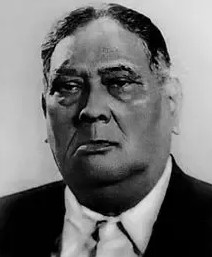
Fazlul Huq’s political journey was both diverse and impactful. He held numerous high-profile positions, including serving as the President of the All India Muslim League from 1916 to 1921 and as the General Secretary of the Indian National Congress between 1916 and 1918, a rare feat that underscored his unique position across the political spectrum of the time. His role as the Education Minister of Bengal in 1924, Mayor of Calcutta in 1935, and notably as the first and longest-serving Prime Minister of Bengal during the British Raj from 1937 to 1943, highlighted his multifaceted leadership and administrative capabilities.
In 1913, Fazlul Huq was first elected to the Bengal Legislative Council from Dhaka, marking the beginning of a political career that would span decades and see him actively involved in both the Indian independence and Pakistan movements. His tenure in the Bengal Legislative Assembly, particularly as Prime Minister and Leader of the House between 1937 and 1947, was notable for his efforts to address the concerns and aspirations of the Bengali populace. After the partition of India, Huq continued to play a significant role in the newly formed Dominion of Pakistan, serving in various capacities such as the Advocate General of East Bengal, Chief Minister of East Bengal, Home Minister of Pakistan, and Governor of East Pakistan.
One of Huq’s most enduring legacies was his presentation of the Lahore Resolution in 1940, which called for the creation of independent states in the Muslim-majority eastern and northwestern parts of British India. This pivotal moment in South Asian history laid the groundwork for the eventual creation of Pakistan, highlighting Huq’s visionary leadership and his commitment to the idea of a separate nation for Muslims.
Sheikh Hasina Wazed: Longest-Serving Female
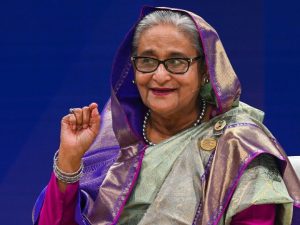
Famous Personalities: Sheikh Hasina Wazed is a Bangladeshi politician who has served as the tenth Prime Minister of Bangladesh from June 1996 to July 2001 and again since January 2009. She is the daughter of Sheikh Mujibur Rahman, the founding father and first president of Bangladesh. Having served for a combined total of over 19 years, she is the longest-serving prime minister in the history of Bangladesh. As of 25 February 2024, she is the world’s longest-serving female head of government.
Conclusion of Famous Personalities
The stories of these famous personalities from Bangladesh illustrate the country’s rich history of resilience, leadership, and innovation. Their contributions have not only shaped the nation’s identity but also left an indelible mark on the world stage. As we reflect on their legacies, it’s clear that their spirits live on, inspiring future generations to continue the journey toward progress and prosperity.
FAQs of Famous Personalities
-
What was Muhammad Yunus’s key contribution to global finance?
- Muhammad Yunus introduced the concepts of micro-credit and micro-finance, transforming the approach to poverty alleviation and economic development.
-
Why is Sheikh Mujibur Rahman referred to as the founding father of Bangladesh?
- His leadership and advocacy for Bengali rights and independence were instrumental in the formation of Bangladesh, earning him this title.
-
How did Khaleda Zia impact education in Bangladesh?
- She made primary education compulsory and free for girls up to grade ten, significantly improving literacy rates and female education.
-
What is Kazi Nazrul Islam known for?
- He is known as the Rebel Poet for his revolutionary works advocating freedom and resistance against oppression.
-
What were Ziaur Rahman’s major achievements?
- He is credited with socio-economic reforms, lifting martial law, and fostering regional cooperation in South Asia.



